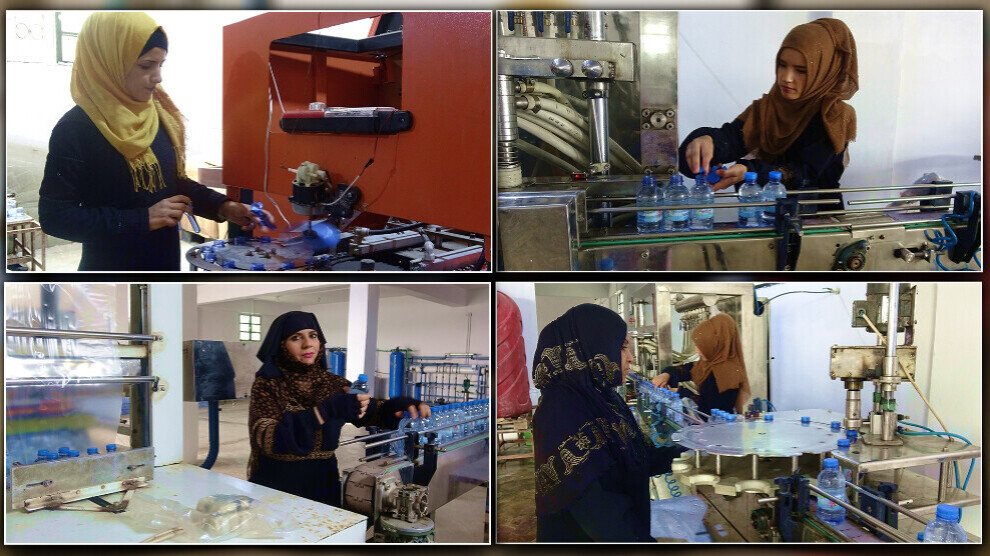Women's labor force participation increases in Raqqa
Women’s labor force participation in Raqqa has increased since the city was liberated from ISIS.

YUSRA AL-EHMED
Raqqa- Women have been taking part in all facets of life such as in politics, military, art and culture and economy since the “Women’s Revolution” in Rojava. More women participate in the labor force in Raqqa since the city was liberated from ISIS. NuJINHA spoke to women working in the Al Furat Bottled Mineral Water Factory opened in Raqqa two years ago.
Wafa Mahmud is the only breadwinner of her family of nine since her spouse was killed in the fight against ISIS seven years ago. She works at the factory to take care of her eight children. “I work because I do not want to ask for support from anyone. I want my children to have a free life with dignity,” she said, emphasizing that many factories have been recently opened in the region, providing various job opportunities for women. “More factories providing employment opportunities to women should be opened.”
Asmaa Muhammed Al-Amara works in the factory with her sister to meet the health and medical expenses of their parents. “Demands for bottled mineral water increase because the factory offers high quality bottled water.”
‘Women can now make decisions about their own lives’
Recalling that women suffered a lot when Raqqa was controlled by ISIS, Asmaa Muhammed Al-Amara said:
“Women were deprived of their rights and seen as slaves. Women were considered as birth-given machines. After our city was liberated from ISIS, we refused to be slaves. Women can now make decisions about their own lives.”
Asmaa Muhammed Al-Amara works very carefully and hard because, “Any mistake or lack of attention can cause serious damage. I love my job. I was subjected to societal pressures but I overcame all barriers. A woman should fight to win; they should make efforts to succeed. Now, I feel stronger.”
‘Women achieve their economic independence’
Xadice Ahmed Al-Suwaiqa, another woman working in the factory, made a comparison between before and now, saying, “In the past, women worked only in agriculture and at home. Now, they have been participating in the labor force. Women achieve their economic independence.”
Her dream is to complete her education
Rawan Abdullah is a young woman working in the factory. She is one of the displaced women from Aleppo. She works in the factory to meet her expenses and support her family. “I buy food supplies for my family and pay the rent of the house. My dream is to return to my city and complete my education.”
Esma Abdel had to leave her house in Deir ez-Zor six years ago and now she works in the factory to “support my family. Most of the women working in the factory are the only breadwinners of their families. Some work here to support their families.”
